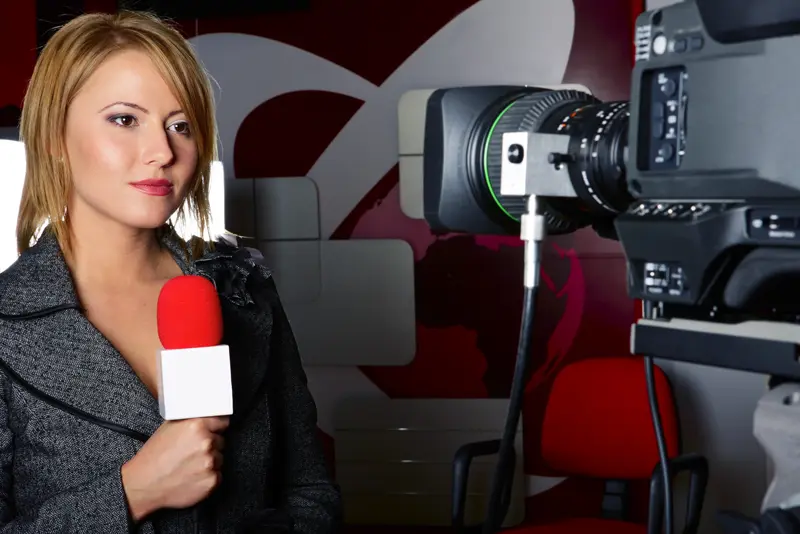
In order to produce a good and accurate narrative, journalism relies on getting your subjects to provide crucial information that your audience will want to know. It is expected of journalists to act in the public’s best interests by producing insightful, instructive, investigative, and entertaining information. It’s challenging for journalists to transcribe their own audio files when they have to confirm facts and meet deadlines. For this reason, journalists may prefer to employ general transcription companies to transcribe their interviews.
By producing informative, instructional, investigative, and entertaining information, journalists are supposed to act in the public’s best interests. The interviewee’s exact comment, together with anything that came before or after it, can be easily located by the journalist and cited when necessary. Journalists will frequently refer to past conversations with influential figures or those who are regularly in the public’s eye in their reports using accurate interview transcripts. It also gives readers a deeper understanding of the subject of the news pieces.
Find out how to use transcription to gather precise information from your subjects that will be engaging for your audience.
- Planning ahead for the interview: Planning is essential for landing excellent interviews. To make the most of your time with the subject, you should establish a good plan. Researching the specific issue and conversation topic is part of pre-planning. To generate insightful questions to ask, do background research on the issue and discussion topic. When formulating questions for the topic, keep your main purpose in mind. Keep in mind that you want to gather material that will be valuable to your audience rather than information that won’t contribute anything extra.
- Record your subject’s remarks as it is: It is crucial to record your subject’s remarks so that they can later be converted into a written interview transcription. If you have a recording of the interview, you won’t miss any crucial details that might have been revealed. Additionally, you will have plenty of time to assess your subject’s comments before deciding on the story’s direction. Intentional mistakes are not acceptable in professional journalism. You can pay a transcription service provider to transcribe your interview recording if you need to submit a piece quickly. You can uncover material in the interview that would be useful for your audience quickly by using transcripts prepared by a professional transcribing company, which are free of errors.
- Be flexible: Being a competent journalist involves not just pre-planning your interview questions, but also knowing when to stray off the script in order to learn more insightful information. Occasionally, a subject will reveal new details during an interview that you were unaware of but that may be important to the plot. Based on the knowledge that has already been provided, you should be adaptable in order to think of relevant questions that will allow you to learn more. This entails being able to listen carefully, connect information quickly, perform critical analysis, and be adaptable in order to think of good interview questions that would add value to the conversation. You might need to occasionally deviate from the norm to find reliable information.
Journalists Opt for Manual transcription
The best option for accurate quotations and challenging interviews is manual transcribing, regardless of the recent advances in technology and software. There are procedures you can go through before you start transcribing to make the process simpler. Make sure the audio is crystal clear first. While Voice Record Pro for the iPhone and Android offers excellent playback, you can use recording tools like the Zoom H4n whenever practical. It is advisable to listen to the entire recording once it has been made before starting. Take note of the recording’s duration (and estimate how much time you will need), the speakers, any noteworthy quotes, and any particularly challenging passages. The second step is to decide whether you will be transcribing verbatim (exactly what you hear) or non-verbatim (removing fillers and repeated words), and then stick with that decision throughout the text. You can also choose whether you need to translate it altogether or just the passages that include the quotes you plan to utilize. As you listen through, you can make a note of the timestamps of each passage. Download transcription software, which enables typing and recording without requiring you to take your hands off the keyboard, as your third step.
A skilled journalist will never attempt to transcribe during an interview. If you do so, it is highly likely that you may miss some of the interviewee’s points. Additionally, you cannot anticipate your interviewee to wait patiently until you are done writing. The best course of action is to record the full interview using non-digital (CD, DVD, etc.) or digital (CD, DVD, etc.) formats (VHS cassettes, Magnetic tapes etc.) Once the interview has been recorded, send it to a reputable interview transcription service to get it transcribed as soon as possible.



